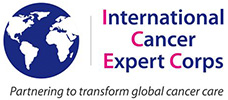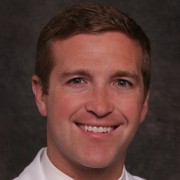John M. Longo, MD
My decision to pursue medicine arose from a deep impulse to serve others. This commitment to social justice and action began within my family, continued throughout high school and college, and enriched my experience at the Univeristy of Nebraska School of Medicine. As a board member and fundraiser for Nebraska’s student-run SHARING Clinic for Omaha’s indigent population, I was charged with raising funds to support clinic operations and collaborated with a team of health professions students and faculty to deliver quality care at 1,500 annual patient clinic visits. I participated in medical mission trips to Falmouth, Jamaica and Tlanchinol, Mexico. A fourth year elective rotation in medicine at Cape Town’s Tygerberg Hospital revealed both the shortcomings of health care delivery in the developing world and the ways in which quality care can be administered in resource-limited settings.
I was drawn to an intern year at Tulane University in New Orleans by the multicultural staff and faculty and the unique Gulf Coast population. During my radiation oncology residency at the Medical College of Wisconsin, I have sought ways to work with different communities, domestically and internationally. I have developed a relationship with Progressive Community Health Centers, a clinic that provides primary care to predominately low-income and minority Milwaukee residents. Through this partnership, I have delivered interactive cancer screening education to Progressive clinicians, nurses, and staff so that they are better equipped to share this information with their patients.
A global health elective in the Radiotherapy Department of Mulago Hospital in Kampala, Uganda in July of 2014 has been a residency highlight. Mulago is home to the sole teletherapy machine in the country, a singular Cobalt-60 machine that operates 24 hours a day, Monday through Friday, reserving most Saturdays for larger palliative fractions. It was a privilege to serve Ugandan patients and work with and learn from the excellent Ugandan physicians and clinic staff members. In between procedures, meetings, and clinics, I delivered twelve radiation oncology -focused lectures to various groups. This teaching component enabled me to share educational resources and insights from my training in the U.S. Importantly, the talks peaked the curiosity of my Ugandan colleagues, generated lively discussions, sparked questions, and encouraged further study.
As a member of the Association of Residents in Radiation Oncology (ARRO) Global Health Sub-committee and the American Brachytherapy Society (ABS) International Affairs Committee, I have worked to include more resident colleagues in cancer outreach efforts. Through a common desire to improve cancer care in resource-limited settings, these two groups along with ASTRO have partnered to develop the Global Health Rotation Initiative. This initiative has identified sites across the world, from Bengaluru, India to Rapid City, South Dakota, that are willing to host resident physicians with the hopes of spurring mutually beneficial and sustained clinical, research, and educational collaboration.
My work with the underserved has been transforming professionally and personally. I am committed to working as a physician-educator both in the US and abroad and look forward to helping others with similar goals do the same as a member of ICEC.


